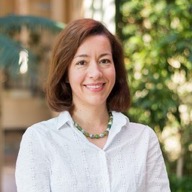Creative Residency 2021 Jurors:
Research
Meet the jurors for the 2021 Creative Residency program.

Carl Morgan completed a Master’s degree in electrical engineering at the University of Washington in 1975 and subsequently spent a career putting Nature’s principles to work. In 1992, Morgan became one of the five founders of a medical device company, Heartstream. The company pioneered easy-to-use automatic external defibrillators (AEDs), used to rapidly treat victims of cardiac arrest. These devices have since been employed to save tens of thousands of lives and may be seen today installed in boxes around Winslow. A lifetime as an engineer applying math and physics powerfully highlighted the crystalline and timeless beauty of the principles underpinning our physical existence. Since 2007, Morgan has focused his energy on art that celebrates the underlying beauty of the math and science we humans use to describe nature. Each of his kinetic sculptures seeks to highlight a principle taken from Mother Nature’s recipe book for our physical world. His pieces seek to engage viewers with nature’s principles shown not for their practicality, but for the sense of wonder they inspire. Morgan was in residence at Bloedel Reserve during the month of February 2020.
 Laura Bartunek began her architectural education at the University of Washington and relocated to the East Coast to receive her M.A. in architecture from the Graduate School of Design at Harvard. Bartunek returned to the Pacific Northwest in 2011 and joined the architecture firm Olson Kundig as an intern. In 2016, she was named an associate of the firm. At Olson Kundig, Bartunek is known for her interest in imaginative and exploratory architecture, which has informed her work on such cultural projects as the Secret Garden, a rooftop garden located above a nine-story department store in South Korea, and the CheckMate Winery Pop-Up, a temporary kinetic tasting room nestled in the landscape of the Okanagan Valley of British Columbia. These projects also reflect her continued interest in landscape – both real and imagined, micro and macro — as a point of departure for design investigations. Her recent proposal “Because It Rains” was awarded the AIA Seattle Emerging Professionals Travel Scholarship and explored the concept of rain as a creative catalyst in design. Bartunek and her father Mike Bartunek were in residence at Bloedel Reserve during June 2020.
Laura Bartunek began her architectural education at the University of Washington and relocated to the East Coast to receive her M.A. in architecture from the Graduate School of Design at Harvard. Bartunek returned to the Pacific Northwest in 2011 and joined the architecture firm Olson Kundig as an intern. In 2016, she was named an associate of the firm. At Olson Kundig, Bartunek is known for her interest in imaginative and exploratory architecture, which has informed her work on such cultural projects as the Secret Garden, a rooftop garden located above a nine-story department store in South Korea, and the CheckMate Winery Pop-Up, a temporary kinetic tasting room nestled in the landscape of the Okanagan Valley of British Columbia. These projects also reflect her continued interest in landscape – both real and imagined, micro and macro — as a point of departure for design investigations. Her recent proposal “Because It Rains” was awarded the AIA Seattle Emerging Professionals Travel Scholarship and explored the concept of rain as a creative catalyst in design. Bartunek and her father Mike Bartunek were in residence at Bloedel Reserve during June 2020.
 Yota Batsaki, Executive Director at Dumbarton Oaks, holds a Ph.D. in comparative literature from Harvard University. Previously, she was a Fellow and Director of Studies in English at St. John’s College, Cambridge, and a Newton Trust Lecturer in the English Faculty, University of Cambridge. Her research interests lie in Enlightenment political economy and literature, especially the concept of self-interest; the cultural history of plants in the modern period; and the movement of people, objects, and ideas in the eastern Mediterranean. She has published essays on 18th-century literature and culture and has coedited three volumes: The Botany of Empire in the Long Eighteenth Century, with Sarah Burke Cahalan and Anatole Tchikine (Dumbarton Oaks, 2016); Imperial Geographies in Byzantine and Ottoman Space, with Sahar Bazzaz and Dimiter Angelov (Center for Hellenic Studies, 2013); and Fictions of Knowledge: Fact, Evidence, Doubt, with Subha Mukherji and Jan-Melissa Schramm (Palgrave-Macmillan, 2011). Batsaki has held fellowships at the Folger Shakespeare Library and the Centre for Research in the Arts, Social Sciences and Humanities at the University of Cambridge. In 2002, she cofounded the Harvard Summer Program in Greece, where she continues to teach. In 2018-21, Batsaki will manage, with Anatole Tchikine, the Mellon-funded Plant Humanities Initiative, a digital tool developed in collaboration with JSTOR and related research and scholarly programming to advance the field of plant humanities.
Yota Batsaki, Executive Director at Dumbarton Oaks, holds a Ph.D. in comparative literature from Harvard University. Previously, she was a Fellow and Director of Studies in English at St. John’s College, Cambridge, and a Newton Trust Lecturer in the English Faculty, University of Cambridge. Her research interests lie in Enlightenment political economy and literature, especially the concept of self-interest; the cultural history of plants in the modern period; and the movement of people, objects, and ideas in the eastern Mediterranean. She has published essays on 18th-century literature and culture and has coedited three volumes: The Botany of Empire in the Long Eighteenth Century, with Sarah Burke Cahalan and Anatole Tchikine (Dumbarton Oaks, 2016); Imperial Geographies in Byzantine and Ottoman Space, with Sahar Bazzaz and Dimiter Angelov (Center for Hellenic Studies, 2013); and Fictions of Knowledge: Fact, Evidence, Doubt, with Subha Mukherji and Jan-Melissa Schramm (Palgrave-Macmillan, 2011). Batsaki has held fellowships at the Folger Shakespeare Library and the Centre for Research in the Arts, Social Sciences and Humanities at the University of Cambridge. In 2002, she cofounded the Harvard Summer Program in Greece, where she continues to teach. In 2018-21, Batsaki will manage, with Anatole Tchikine, the Mellon-funded Plant Humanities Initiative, a digital tool developed in collaboration with JSTOR and related research and scholarly programming to advance the field of plant humanities.

